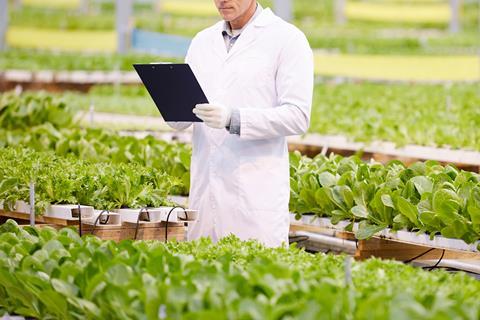
We all know innovation in the food industry is moving faster than ever, from crop breeding to consumer marketing.
There is an urgent need for innovative approaches that will make food healthier and more sustainable, helping to tackle the challenges of a growing population and the existential threat of climate change. At the same time, people are increasingly making decisions on what food they eat based on cultural, ethical and lifestyle factors.
The Food Standards Agency (FSA) is responsible for ensuring food is safe and what it says it is, as well as playing a key role in moving the world towards a food system that is better for people and the environment.
A prime example of this wider mission has been our recent work on precision breeding. Since last May, the FSA has been working alongside officials and ministers at Defra on legislation that will remove precision-bred organisms from the regulatory requirements applicable to the environmental release and marketing of GMOs. The Genetic Technology (Precision Breeding) Act was granted Royal Assent on 23 March 2023 and is now law in England.
Precision breeding refers to genetic changes in plants – and, in due course, animals, although that part of the legislation will follow at a later date – that have been achieved using modern genetic technologies but that ‘could equally have been achieved by traditional breeding’.
Typically, traditional breeding acts by selecting organisms with desirable traits, such as improved fruit or better frost tolerance, that have arisen via spontaneous mutation. Such mutations are most commonly changes to single DNA ‘letters’, known as base pairs, that occur due to natural mistakes made during DNA replication within the cell.
Modern gene editing technologies can generate the same changes, but in a highly targeted way. So instead of screening thousands of plants that each carry a different mutation to find the desired one, breeders can create it in one step.
Precision breeding therefore offers the potential for much faster development of crops with traits such as improved nutritional content or pathogen resistance. However, our consumer studies show public understanding of precision breeding is very low and there are concerns about the use of gene-editing techniques in agriculture.
The FSA has a duty to consumers to ensure the food they eat is safe and trusted, but our responsibilities extend to protecting ‘other consumer interests’, which include healthy diets, sustainable agriculture and animal welfare. Innovation can help to support all of these aims as well as giving consumers access to a wider variety of foods.
It is important we balance our approach to regulating precision breeding to deliver on each of these fronts. If regulations disable innovation by being unnecessarily burdensome, they delay mainstream use of the technology and prevent consumers from benefiting from new products. However, there must be no compromise on safety or in the safeguards that ensure public trust in the food system.
This is why, now that the Act has become law, we will be working with ministers to implement secondary legislation to create a robust, bespoke assessment process for precision-bred food and feed. As ever, this process will be underpinned by the best available scientific advice in order to ensure precision-bred food reaches market swiftly and safely.



















No comments yet